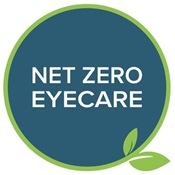General News
Election 2024 Roundup in the last week
Election 2024 Roundup
Our review of comments made
In the final weeks leading up to the 2024 UK general election, political parties have made specific commitments regarding primary care, with a focus on eyecare, dentistry, and audiology.
Labour Party
The Labour Party has proposed several measures to improve primary care services. Their “Dentistry Rescue Plan” aims to increase the number of urgent dental appointments by 700,000 and recruit more dentists in underserved areas, often referred to as “dental deserts,” through incentives and dental contract reforms. Additionally, they plan to introduce a supervised tooth-brushing scheme for children aged 3 to 5 in high-need areas to reduce hospital visits for tooth decay (NHS Confederation) (Community Care).
In the realm of eyecare, Labour has pledged to enhance access to optometry services, though specific details have been less emphasized compared to their dental initiatives. For audiology, their focus has been on integrating services within primary care to ensure timely and accessible hearing care, but specific policies and funding plans are still emerging (NHS Confederation).
Conservative Party
The Conservative Party has concentrated on improving efficiency within the NHS and expanding digital health services, including primary care. They aim to modernize NHS dentistry contracts to ensure better access and quality. Their primary care initiatives include promoting the use of digital tools to facilitate remote consultations and treatment planning, which encompasses audiology and eyecare services (Community Care).
Liberal Democrats
The Liberal Democrats have highlighted the need for significant investment in primary care infrastructure, including eyecare, dentistry, and audiology. They advocate for an increase in funding to reduce wait times and improve service availability. Their manifesto also includes plans to boost recruitment and training for primary care specialists, aiming to tackle shortages in these critical areas (Community Care).
Green Party
The Green Party has proposed a comprehensive £50 billion health and social care plan, which includes investments in primary care services like eyecare, dentistry, and audiology. They emphasize a preventive approach and aim to integrate these services more closely with community care to improve overall accessibility and efficiency (Community Care).
Overall, each party acknowledges the critical role of primary care and has proposed various strategies to enhance services in eyecare, dentistry, and audiology, reflecting their broader healthcare commitments as the election approaches.
FODO publishes its roundup of election news and views
Eye care election themes emerge

Harjit Sandhu, managing director at FODO, said: “It is great to see all sector bodies calling on the next government to rebalance expenditure to invest more in primary eye care. Our shared goal is to help prevent sight loss due to delays in care. Transforming eye care will reduce pressure on GPs and hospital colleagues. These new models of care will also be more cost-effective. A win-win for all.”
He added: “Working together, with a united voice to fight for patients’ right to sight, is the only way to achieve our shared vision of preventing all avoidable cases of sight loss. FODO will continue to work with ABDO, AOP, the Colleges, LOCSU and all other sector partners to make change happen.”
FODO has invited its members to help shape the future of eye care by participating in its work on IT connectivity and enhanced primary eye care services.
The sector-wide consensus is clear – the next government must invest more in primary eye care to help prevent avoidable sight loss. It should invest in enhanced services, IT connectivity and the workforce.
- FODO set out the case to transform eye care in the Future of primary eye care in March 2023 and this year in its election priorities in May, position statements and animation.
- The College of Optometrists published its manifesto to end the eye care crisis, highlighting the urgent need for action.
- The Roche-funded Eyes Have It initiative, including the AOP and other sector bodies, published its vision for the future of eye health in England last year.
Specsavers’ manifesto calls on the Government to improve access to eye care services closer to home.
- The Royal College of Ophthalmologists shares similar priorities with optical sector bodies and calls for increased investment in training more ophthalmologists.
A view from the AOP
Three steps towards visionary change in eye health for an incoming Government
The AOP is outlining three core priorities that are needed to fast-track the transformation of eye care for patients, as part of a renewed focus on primary care delivery
The Association of Optometrists (AOP) has published Visionary change in eye health, setting out three policy recommendations for the next Government to ensure everyone is able to access specialist eye care when they need it and wherever they live, and to tackle the ophthalmology waiting list which is currently leading to avoidable irreversible sight loss.
With polling day for the General Election one week away, the AOP will be urging the next Government to use capacity within the highly skilled, community-based clinical optometry workforce to provide additional eye care services to cut the waiting list backlog and reduce pressure on GPs and A&E services.

Adam Sampson, Chief Executive of the AOP said: “This election comes at a critical moment for the NHS and the people it cares for every day. It is essential that everyone has access to high-quality, specialist eye care when they need it, close to home. With an ophthalmology waiting list of over 600,000, and mounting pressure on GPs services, the next government will inherit a healthcare system under great strain – but the opportunities to address the problems do exist. Investment in primary care will be a critical component of the solution, and we argue that the untapped resource within optometry, with the right level of support, has a vital role to play.
Our Policy recommendations
“Our three policy recommendations underpin what we have called for as part of our high-profile public campaigns, including Sight Won’t Wait, which set out the steps to fast-track the transformation of eye care for patients, immediately cutting patient waiting lists and reducing pressure on overstretched NHS services.
“Our practical recommendations propose a smarter commissioning approach to eye care – specifically in England which does not have a national plan for eye care. We need to stop the wasteful use of scarce NHS resources by joining up the infrastructure behind primary and secondary care, leading to more timely diagnosis and treatment, and critically better health outcomes for patients.”
The three policy recommendations are:
- Extending the scope of community eye care services such as glaucoma monitoring schemes, Minor Eye Care Services (MECS) and Community Urgent Eye Services (CUES) which treat patients and reduce the need for a referral into secondary care – ending the postcode lottery in England
- Widening the prescribing powers of all optometrists to allow optometrists to provide medications for eye conditions they are already qualified to treat. Updating the ‘entry level exemptions’ list of medications, which has not been revised since 2005, will enable optometry to reduce the need for millions of GP appointments
- Investing in IT infrastructure for the NHS to allow large file image sharing and real-time communication between clinicians to stop delays to care, speed up diagnosis and support access to treatment across primary and secondary care at the earliest opportunity.
In June, the AOP launched its One million appointments campaign, which highlighted the millions of GP appointments that could be saved by redirecting patients into the appropriate, specialist services within optometry. The campaign called for vital investment in the NHS IT infrastructure alongside the universal commissioning of extended eye care services.
To read the priorities in full, visit www.aop.org.uk/visionarychange.
























